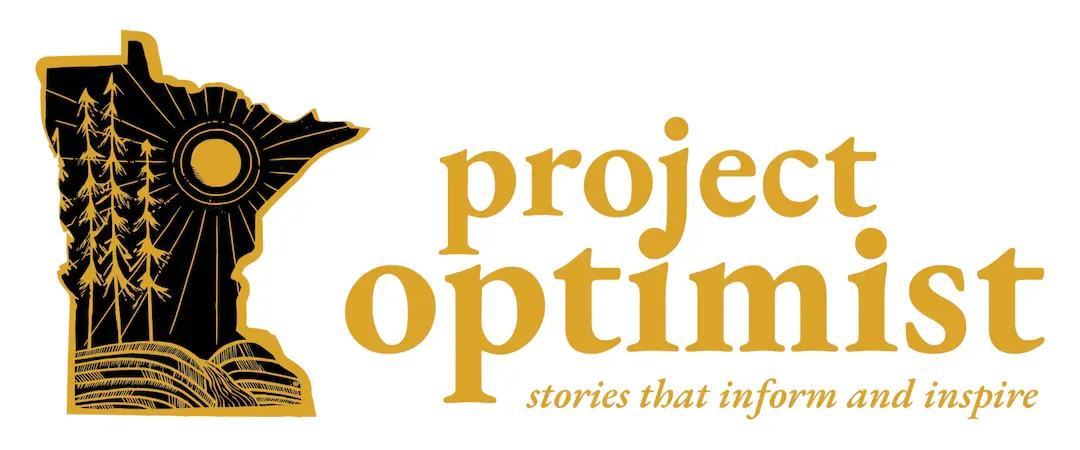Project Optimist policies
Review our editorial independence, fundraising, donations, anonymous sources, corrections, and conflict of interest policies.

Project Optimist is a member of the Tiny News Collective and Local Independent Online News Publishers.
Editorial Independence, Fundraising, and Donations
Project Optimist retains authority of editorial content. The organization has a firewall between news coverage decisions and revenue sources. Acceptance of financial support does not constitute implied or actual endorsement of donors or their products, services, or opinions.
Project Optimist may pursue donations, grants, or sponsorships to support coverage of specific topics, but the organization maintains independent, editorial control of the coverage. Project Optimist will cede no right of review or influence of editorial content, nor of unauthorized distribution of content. Accepting financial support does not mean we endorse the contributor or their products, services, or opinions.
Project Optimist will avoid accepting charitable donations from political parties, elected officials, or candidates seeking public office. Government support in the form of grants or sponsorships must be reviewed and approved by our board of directors. We will not accept donations from sources who, deemed by our board of directors, present a conflict of interest with our work or compromise our independence.
Project Optimist will annually publish a list of donors who contribute to the organization. The list will be archived on the website.
Anonymous donations will be capped at $500 and used for general operating expenses of the organization.
Use of Anonymous Sources
Project Optimist follows the Society of Professional Journalists’ policy on use of anonymous sources:
We will:
- Identify sources whenever feasible. The public is entitled to as much information as possible on sources' reliability.
- Always question sources’ motives before promising anonymity. Clarify conditions attached to any promise made in exchange for information. Keep promises.
- Journalists must have an approval from a top editor at Project Optimist before agreeing to use information provided by an anonymous source. This would be the managing editor or executive director.
- One Project Optimist editor must know the identity of the anonymous source.
Corrections, Clarifications, and Typos
Project Optimist strives to report stories accurately, but we’re human, and mistakes sometimes happen.
We will be transparent about errors and quick to correct them. We’ll put a note at the top of the story noting what information has been corrected.
We also distinguish between corrections, which are made when we make a mistake, and clarifications, which are done to make information clearer or to ensure information is not misleading.
We will fix typos without noting the change as long as the typo didn’t muddle the meaning of the sentence.
Let us know here if you spot an error in one of our stories.
Style for corrections
We will
- put the correction at the top of the story where it happened.
- state what has been corrected (do not repeat the error). Example: This story was updated on August 1, 2024 with the correct spelling of Cletus Zettel’s name. Project Optimist regrets the error.
- include the correction in the top section of the next newsletter.
Conflict of Interest
This policy draws from one shared by the Institute for Nonprofit News and a sample policy provided by the IRS. It was first approved on November 12, 2024, by all four board members present.
Article I - Purpose
The following Financial Conflict of Interest Policy (“Conflict of Interest Policy”) is an effort (i) to ensure that the deliberations and decisions of Project Optimist (“PO”) are made solely in the interest of promoting the quality of journalism in the state of Minnesota, and (ii) to protect the interests of PO when it considers any transaction, contract, or arrangement that might benefit or be perceived to benefit the private interest of a person affiliated with PO (each, a “PO Representative”).
Article II - Definitions
Section A: As used in this Conflict of Interest Policy, a PO Representative includes any director, advisory board PO, financial advisor, legal counsel, or employee.
Section B: Duty to PO. Each PO Representative owes a duty to PO to advance PO’s legitimate interests when the opportunity to do so arises. Each PO Representative must give undivided allegiance when making decisions affecting the organization. Similarly, PO Representatives must be faithful to PO’s nonprofit mission and are not permitted to act in a way that is inconsistent with the central goals of the organization and its nonprofit status.
Section C: Conflicts of Interest. The following are examples of conflicts of interest which must be promptly disclosed to the PO Board of Directors pursuant to Section 4 below by any PO Representative with knowledge of such conflict of interest:
- any real or apparent conflict of interest between a donor or the subject of a PO publication or report and a PO Representative;
- a PO Representative’s ownership of an equity interest in a person or entity that is or will be the subject of a PO publication or report; and
- failure to disclose to PO all relationships between the subject of any PO publication or report and any PO Representative or close relatives of the PO Representative.
Article III - Conflict Procedure
- If a PO Representative or party related to a PO Representative has an interest in any contract, action or transaction to be entered into with PO, a conflict of interest or potential conflict of interest exists. Any PO Representative having knowledge that such a conflict of interest exists or may exist (an “Interested PO Representative”) will so advise the Board of Directors promptly. An Interested PO Representative will include in the notice the material facts as to the relationship or interest of the Interested PO Representative in the entity proposing to enter into a contract, action or transaction with PO.
- Notwithstanding anything herein to the contrary, the Board of Directors may authorize any committee appointed pursuant to the PO by-laws (a “Committee”) to act in lieu of the Board of Directors in determining whether an action, contract or transaction is fair to PO as of the time it is authorized or approved by the Committee.
- At any time that a conflict of interest or potential conflict of interest is identified, the Board Chair and Executive Director must be notified. The President of the Board or a Chair of the applicable Committee will ensure that such conflict of interest is placed on the agenda for the next meeting of the Board of Directors or the Committee, as applicable. The notice of such meeting of the Board of Directors or the Committee, as applicable, will include, to the extent available when the notice is sent, a description of the conflict of interest matter to be discussed. By notice before the meeting or at the meeting, the directors on the board or the Committee, as applicable, will be advised that a vote will be taken at the meeting and that, in order to authorize the relevant contract, action or transaction, an affirmative vote of a majority of disinterested directors present at the meeting at which a quorum is present will be required and will be sufficient, even though the disinterested directors constitute less than a quorum of the Board of Directors or the Committee.
- Reasonable effort will be made to cause the material facts concerning the relationships between the individuals and PO which create the conflict to be delivered to and shared with the POs of the Board of Directors or the Committee, as applicable, prior to the meeting to enable the directors to arrive at the meeting prepared to discuss the issue. In the event it is not practicable to deliver the information prior to the meeting, it will be delivered to the directors at the meeting, and the directors can act upon the matter with the same authority as if notice had been given prior to the meeting.
- The Board of Directors or the Committee, as applicable, will invite all parties to the conflict of interest to attend the meeting, to make presentations and to be prepared to answer questions, if necessary. The Board or Directors or the Committee, as applicable, will also invite outside experts if necessary.
- At the meeting, providing a quorum is present, the conflict will be discussed to ensure that the directors present are aware of the issues and the factors involved. The interested directors may be counted for purposes of a quorum, even though they may not take part in any vote on the issues.
- The Board of Directors or the Committee, as applicable, must decide, in good faith, reasonably justified by the material facts, whether the action, contract or transaction would be in the best interest of PO and fair to PO as of the time it is authorized or approved.
- All interested directors must abstain from voting and, if necessary, leave the room when the vote is taken.
Article IV - Records of Proceedings
- The Board of Directors or the Committee, as applicable, will maintain a written account of all that transpires at the meeting and incorporate such account into the minutes of the meeting and disseminate it to the full Board of Directors. Such minutes will be presented for approval at the next meeting of the Board of Directors and maintained in the corporate record book.
- To the extent that the conflict of interest is continuing and the contract, action or transaction goes beyond one (1) year, the foregoing notice and discussion and vote will be repeated on an annual basis.
- Personal Loans. PO may not loan to, or guarantee the personal obligations of, any PO Representative.
Article V - Compensation
- A voting member of the governing board who receives compensation, directly or indirectly, from the Organization for services is precluded from voting on matters pertaining to that member's compensation.
- A voting member of any committee whose jurisdiction includes compensation matters and who receives compensation, directly or indirectly, from the Organization for services is precluded from voting on matters pertaining to that member's compensation.
- No voting member of the governing board or any committee whose jurisdiction includes compensation matters and who receives compensation, directly or indirectly, from the Organization, either individually or collectively, is prohibited from providing information to any committee regarding compensation
Article VI
Section A: Annual Statements
Each director, principal officer, and member of a committee with governing board delegated powers shall annually sign (virtually or in person) a statement which affirms such person:
- Has received a copy of the conflict of interest policy,
- Has read and understands the policy,
- Has agreed to comply with the policy,
- Will report at that time any potential conflicts to the executive director and board chair, and
- Understands the Organization is charitable and in order to maintain its federal tax exemption it must engage primarily in activities that accomplish one or more of its tax-exempt purposes.
Section B: Periodic Reviews
To ensure the Organization operates in a manner consistent with charitable purposes, and doesn't engage in activities that could jeopardize its tax-exempt status, periodic reviews shall be conducted. The periodic reviews shall, at a minimum, include the following subjects:
- Whether compensation arrangements and benefits are reasonable, based on competent survey information, and the result of arm's length bargaining.
- Whether partnerships, joint ventures, and arrangements with management organizations conform to the Organization's written policies, are properly recorded, reflect reasonable investment or payments for goods and services, further charitable purposes and don't result in inurement, impermissible private benefit, or in an excess benefit transaction.
